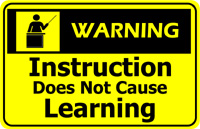I just read a wonderful post by Jane Hart entitled “The Future Of Social Media In The Enterprise“. In it, she deftly describes an issue that I’ve been encountering often lately with potential clients who want to talk about using this game-changing paradigm-shifting bar-raising (insert your own favorite stupid marketing metaphor here) thing we call Social Media.
 Her argument is quite elegant. If I may distill it, she feels that using Social Media tools only behind your firewall (not allowing employees to connect outside the company) is short-sighted. And that their real value is the cross-pollination and connection that comes from engaging across a discipline, around the world, and to people who see things in vastly different ways.
Her argument is quite elegant. If I may distill it, she feels that using Social Media tools only behind your firewall (not allowing employees to connect outside the company) is short-sighted. And that their real value is the cross-pollination and connection that comes from engaging across a discipline, around the world, and to people who see things in vastly different ways.
(I bet British Petroleum has a great internal forum to discuss how much time and money to spend when drilling really deep wells, and what to do when you get 700+ safety violations. But maybe, if they’d been more connected to reality, they wouldn’t have lost $17 BILLON DOLLARS and become the poster boy for dumb.)
I have to say, though, that I’m getting a little bit tired having this discussion with people who are extremely focused on keeping the fence up between their employees and the rest of the world. Stopping the dangers of Farmville, YouTube, and people randomly getting information they might use to improve their skills. It’s exhausting to keep having the same chat with the same network administrators. The same vendors who want to sell their custom “behind the firewall” solutions. The same tiny minds who think they have all sorts of special secrets about how they put their canned hams in the boxes and ship them out.
Would it make more sense for me to have a “pre-work” session, where there’s an assessment of some kind? And if the client is mostly focused on how to lock all the doors and bar all the windows — just smile and move along?
On Jane’s blog, I said it this way:

We try to run from or eradicate that which we do not understand. If we can’t kill it, we try to control it and limit the access of others.
Probably true with the first cave-person who found fire. Still true in corporate America today. I have to admit that I, personally, am actually getting a little tired of having this discussion with potential clients and people who ask for advice.
I want to just say “Whatever” and move on to someone who’s open to new ideas and things that might help them. (Kind of a lifeboat drill — if I’ve only got so many years left, do I spend them arguing with people about the VALUE of parachutes or just HAND OUT parachutes to as many people as possible before the crash?)
It’s actually kind of exhausting. Like trying to convince my mom that “unlimited long-distance” actually meant she could talk to me as long and as often as she liked.
Never won that one, either.
So what do you think? Do you want a parachute, or should we keep talking about the nuts and the in-flight movie?
.